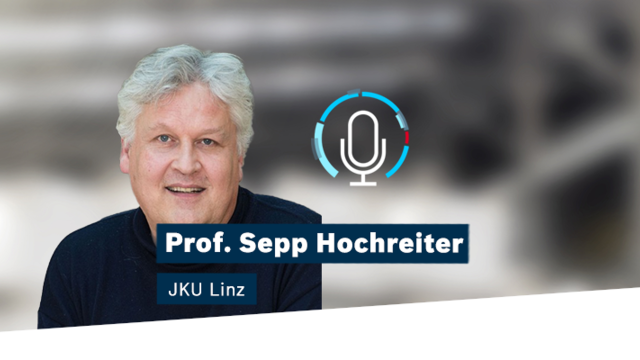



Without the research carried out by Prof. Dr. Hochreiter, there would be no voice assistants today. He is regarded as one of the fathers of the LSTM algorithm and received the IEEE CIS Neural Networks Pioneer Award in 2021. Nowadays, he teaches at the JKU Linz. LSTM networks are among the leading methods for speech processing and text analysis and are now used in billions of smartphones, PCs and cars and even in industry. In this interview, he talks to Bosch Rexroth about the role of AI models, few shot learning and improvements in the factory.
An interview with Prof. Dr. Sepp Hochreiter, JKU Linz
Does industry have to rethink things when it comes to artificial intelligence?
Hochreiter: It does in certain cases. If Google and Facebook can also be regarded as industry, then certainly not, but our machine and system manufacturers do have to think about things in a new way because artificial intelligence (AI) is highly dynamic, can be integrated quickly, but also changes quickly. Industry has to rethink things. In Amsterdam, Qualcomm, Bosch and Microsoft have AI labs where staff can publicize their activities, start projects together and talk to each other. Developing things for years and then coming out with a solution years later no longer works with AI. People need to develop ideas together and take a look at other companies that use the technology.
Sounds like soft skills.
Hochreiter (laughs): Of course, I didn’t paint the whole picture. If we’re talking about deep learning, companies need new hardware and GPU instances. But many companies don’t have these because they’re expensive and not so easy to set up. This means that trying our AI ideas isn’t easy.
In an interview, I read your plea for GPU sharing in commercial areas...
Hochreiter: Yes, we as companies need to invest in GPU clusters together. We have to put in place testing facilities. When companies realize that something works well, then they invest. Companies need room to explore.
Deep Learning is all well and good, but in industry mathematical models can still do a lot too.
Hochreiter: We have to find out what works better. Deep learning will however grow strongly and will be used in the applications. But yes, we always have to look at what really makes sense.
What are you working on at the moment?
Hochreiter: One topic is few shot learning. We’re working on that with the company Anyline. The AI has learned a lot in the past and can now, for example, recognize the correct numbers even on smeared images. Or if the light conditions are poor, the system can still recognize the letters. We apply knowledge we’ve acquired to new tasks.
Does that mean there’s a basic model?
Hochreiter: Yes, there is. Thanks to this model, the user can quickly adapt to new customers and does not have to train 1,000 new examples again. In fact, two images might be enough.
Could this be applied to production or packaging lines?
Hochreiter: That’s exactly what we want to do. Numerous sensors are built into production lines. Many products and processes are similar. We only have to make slight changes. Everything that’s already been seen or measured we can use and then set the course for improvements.
So models are the future?
Hochreiter: Yes, they’re where the knowledge is. And we adapt them to new customers, new products or marketing strategies.
Who builds the models – the pump manufacturer?
Hochreiter: We had a project in the pharmaceutical industry. A broker who builds and manages models was sitting in the middle. But the broker can become too powerful and you become dependent on him. So you need someone in the middle who you trust.
We’re well aware of this in industry: OPC Foundation, user organizations and many more. Can you see a business model for automation companies among the models?
Hochreiter: Yes, there’s already a business model for basic applications and we can recognize objects: Pyramids, glasses, trees, teddy bears or balls. We can already do this. But more specialized applications are possible. I can imagine tools, models for processes. At the end, after learning to pick up a glass, I have to be able to pick up a frying pan too. Or the AI must remember that some time ago there was always a queue here.
In the Industry rethought podcast from Bosch Rexroth, Prof. Dr. Sepp Hochreiter reveals how he’s implementing this with industrial companies, what role Hopfield networks play and what a wedding dress has to do with AI in industry. You’ll find the podcast here.
___________________________________________
Contact: Susanne Noll
Please contact us!